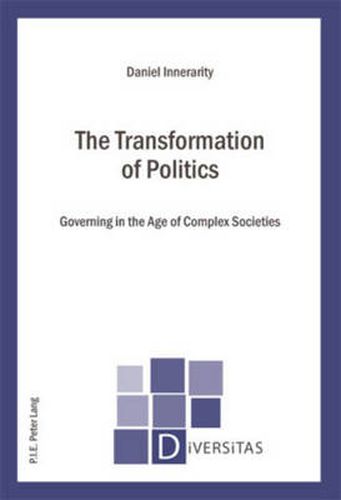Readings Newsletter
Become a Readings Member to make your shopping experience even easier.
Sign in or sign up for free!
You’re not far away from qualifying for FREE standard shipping within Australia
You’ve qualified for FREE standard shipping within Australia
The cart is loading…






Nowadays, politics is only one voice among many in the concert of social self-organization. Its function is to articulate the differentiated systems of our societies: it encourages their self-restraint, while at the same time restraining itself.
Such a conception obviously threatens the primacy of the nation-state. While it is not necessarily disappearing, it must nevertheless cease to be thought of as a dominant principle of organization, and must assume its place in a system of regulation that proceeds on several levels. Distant from the anarchist or Marxist theories that herald the end of the state as it is from libertarian theories of the minimal state, the book illustrates that it is possible in the contemporary period to go beyond the alternatives of dirigisme and neoliberal spontaneity.
However, such a transformation can only prove effective through two conditions: we must first reject the enduring opposition between Right and Left, and second, we must invent an anti-state social democracy that is able in its own right to glean the most it can out of the liberal legacy.
This book combines philosophical technicality, clarity and elegance of writing in an attempt to provide politics with meaning again, particularly in an era where discourse about its powerlessness abounds.
$9.00 standard shipping within Australia
FREE standard shipping within Australia for orders over $100.00
Express & International shipping calculated at checkout
Nowadays, politics is only one voice among many in the concert of social self-organization. Its function is to articulate the differentiated systems of our societies: it encourages their self-restraint, while at the same time restraining itself.
Such a conception obviously threatens the primacy of the nation-state. While it is not necessarily disappearing, it must nevertheless cease to be thought of as a dominant principle of organization, and must assume its place in a system of regulation that proceeds on several levels. Distant from the anarchist or Marxist theories that herald the end of the state as it is from libertarian theories of the minimal state, the book illustrates that it is possible in the contemporary period to go beyond the alternatives of dirigisme and neoliberal spontaneity.
However, such a transformation can only prove effective through two conditions: we must first reject the enduring opposition between Right and Left, and second, we must invent an anti-state social democracy that is able in its own right to glean the most it can out of the liberal legacy.
This book combines philosophical technicality, clarity and elegance of writing in an attempt to provide politics with meaning again, particularly in an era where discourse about its powerlessness abounds.